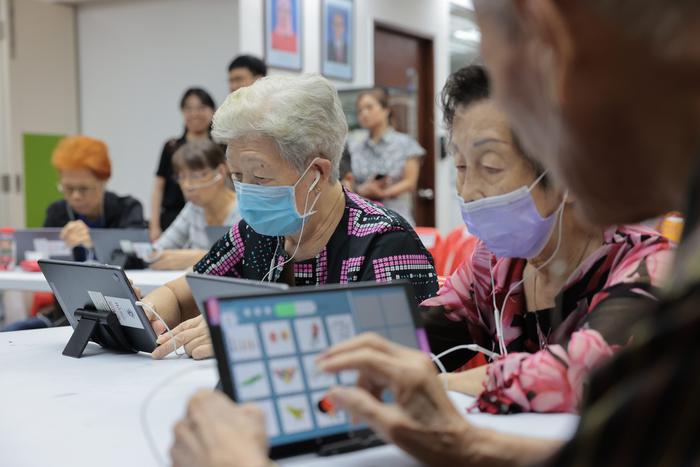A new study from Singapore University of Technology and Design (SUTD) suggests that playing games in two languages could help older adults maintain their mental sharpness. The research, published in Innovation in Aging, shows promising results for a novel app designed to combat cognitive decline through bilingual gameplay.
Bilingualism as a Brain Booster
Professor Yow Wei Quin, who led the research team, explains the rationale behind the study: “Bilingualism is known to promote neuroplasticity and cognitive reserve, with research showing that lifelong bilingualism modifies brain structure and function in older adults. Importantly, bilingualism has been shown to delay the onset of Alzheimer’s disease by an average of 4.7 years.”
To test this concept, the team developed a unique app called DISC (Dual-Language Intervention in Semantic memory – Computerised). Unlike most cognitive games for seniors, DISC incorporates two languages simultaneously, potentially enhancing its brain-boosting benefits.
Real-World Results and Future Plans
The researchers tested DISC with both cognitively healthy and impaired older adults in Singapore. Participants who used the dual-language version of the app showed significant cognitive improvements compared to those using a single-language version or no app at all.
Interestingly, the benefits varied between groups. Cognitively healthy seniors saw immediate improvements in visuospatial skills and later stages of verbal learning. For those with cognitive impairment, improvements in early-stage verbal learning appeared six months after using the app.
The DISC app, now rebranded as Ami (Advancing Mental Invigoration), is already being piloted in real-world settings. A prototype has been installed on 1,000 tablets at a senior enrichment facility run by Lions Befrienders.
Prof Yow and her team are now looking to expand their research: “This cycle of design, technology development, and scientific research has culminated in the Ami app, which serves as an evidence-based cognitive programme inspired by bilingualism research and characterised by its user-centric design.”
Future studies will delve deeper into the biological mechanisms behind the cognitive improvements observed. The team is also collaborating with community organizations to refine the Ami app and integrate it into senior care services.
This innovative approach to cognitive health combines cutting-edge technology with linguistic science, offering a promising new tool in the fight against age-related mental decline. As populations worldwide continue to age, solutions like the Ami app could play a crucial role in maintaining quality of life for seniors.


